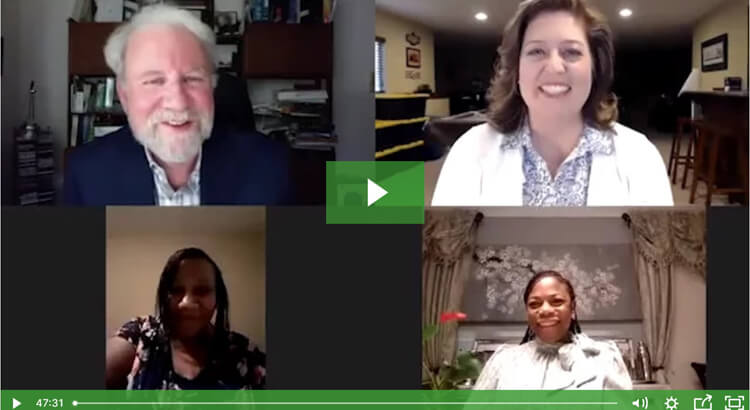There are so many distractions in the world that can get in the way of educating a child.
But America’s educators are resourceful and wily. They understand that if they want kids to learn their reading, writing and ‘rithmetic, attention needs to be paid to all the details.
Arlinda Davis teaches first grade in Birmingham, Alabama, and she does her best to learn about what motivates the children she teaches. They might be shy, but creative. The culture where their family comes from may be important. They have empathy and emotion.
“When you put these pieces of the puzzle together, you get a whole child,” said Davis, a 2019-2020 nominee for the LifeChanger of the Year award. “You get a child full of love who is ready to inherit society.”
Davis joined three other colleagues in the latest TeacherTalk sponsored by LifeChanger. This one was presented in conjunction with the National Coalition for Safe Schools and tackled the topic of educating the whole child.
“If you look at the cracks in the puzzle, that’s what makes them unique,” Davis said of her students. “That’s what you have to look at when you’re looking at educating the whole child, looking at those parts of them that make them who they are.”
Teachers understand that they’ll never be able to reach a student academically if they can’t find a meaningful way to connect with the children.
“We do not teach curriculum. We teach students,” said Keishia Thorpe, the 2018-19 LifeChanger of the Year grand prize winner who teaches high school English and coaches track in Maryland. “So our classrooms should be really inclusive for our students and to celebrate the diversity of all our students and recognize all of their multiple intelligences, all of those things that they bring to the classroom.”
Research bears out the value of focusing on this notion of the whole child, said Ed Dunkelblau, director of the Institute for Emotionally Intelligent Learning and a member of the NCSS board.
“It’s all about relationships,” Dunkelblau said. “We want our children to be able to learn. We know that if they’re not emotionally focused and emotionally able to learn by feeling welcomed, comforted, calm, safe, healthy, if those things don’t exist, they ain’t learning. So what we’ve learned over time, you need to address the social emotional elements of the classroom and the relationship if you hope to be academically successful.”
Children face a world filled with distractions and tensions, especially now with a worldwide pandemic and the social unrest of decades of unresolved racial bias.
“I think it’s more important than ever that we address not just the relationship of children in the classroom, but and how we address their academic needs, we’re talking the whole child,” said Dyane Smokorowski, a previous Kansas state teacher of the year and 2019 National Teacher Hall of Fame inductee.
“There’s an opportunity for an entire scaffolding of support to come in and allow a student to realize, ‘I am not in this thing called life alone,’” she said. “’I have this incredible network of people that can be here to be my support, my champions. Sometimes I just need somebody to tell me it’s going to be OK.’ When you look around and see the power of a network, it’s that empowering feeling of, ‘I can do this. People have my back. I can do it.’”
That can be a heavy burden for the educators, though, especially now that all of the routines of school have been disrupted by the pandemic.
“To do any of this work effectively and sustainably, you have to start with the adults in the building,” Dunkelblau said. “The first thing that we need to do is give the message to every educator that’s returning to work that self-care is the first order of business. If you don’t feed the teachers, they eat the students. So ,I think there’s a really important piece here to make sure to meet the needs of the educators coming back to work.”
And at the same time, it’s OK for children to understand that they’re not alone in trying to make sense of the world. Davis said that helps the kids learn that their emotions are valid.
“I mirror my inner self so that children can see their inner selves and see what’s going on themselves,” she said. “A lot of these kids are dealing with maybe loss of a family member from Covid. They’re dealing with some issues with the racial tensions and arrests, they’re dealing with so many things right now. Teachers are dealing with that, too. Show them how you manage stress. … Teachers are so powerful. You can help a child recognize that inner strength that they have by how you do something.”
Thorpe said all of society benefits when we join together to tackle the weighty issues that confront us. It can start with school.
“To get started with the whole child’s education going back in, it requires all hands on deck,” she said. “Teachers have to understand that they’re not in it alone. It takes collaboration and partnership of school leaders, all educators, families, the community – all community stakeholders. Everyone has a part in it.”
TC112689(0220)P

